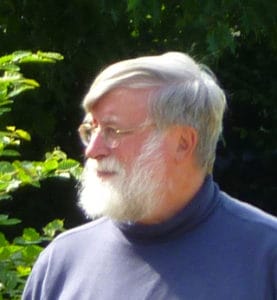Tomorrow: Overcoming hurdles to energy efficiency
%CODE1%Tomorrow:
Overcoming hurdles to energy efficiency
By DICK FIDDLER
It was a privilege to be part of the amazingly thoughtful effort in the 1980s to make energy efficiency a practical, effective resource here in the Northwest. The NW Energy Coalition’s 30th anniversary reminds us of those fruitful, exciting times.
We eventually figured it out fairly well, but energy efficiency does have its quirks. So many parties are involved: building owners (and sometimes tenants), designers and architects, installers and utilities. Fairly robust incentives are needed to boost participation rates to necessary levels. Getting all the interests aligned is no simple task!
Utilities are the only practical sources for the significant funding required, so we must provide workable ways for the utilities to recover their costs reliably. We must evaluate and verify the efficiency savings achieved – understanding that it takes care. You can’t just hang a meter to measure efficiency results.
In my current role with the Sierra Club’s national coal-to-clean-energy campaign, I watch the rest of the nation struggle with these same issues, again and again trying out perfectly plausible ideas that should work but don’t. It’s amazing how many of the answers can be found here in the Northwest, and how relevant our solutions remain.
The planet’s vital climate goals require that we get on with the job. Utility efficiency programs must achieve annual savings of at least 1.5% of load for several decades to come. This is a doable but very challenging target.
To succeed, we must do even better at “going deep” when we get a chance to improve the efficiency of a residential or commercial building. Nationwide, many utility incentives reward just the opposite: getting the surest savings at the lowest possible cost. Many rate structures are complex and far from transparent, raising legitimate ratepayer concerns. No true national measurement and evaluation standards have yet emerged. Finally, to maintain the health of the community that designs and installs efficiency measures – and the vital jobs it provides – we must ensure stable and long-term incentive funding.
I often wish that the knowledge we gained in the ’80s could be swiftly and painlessly transmitted to the rest of the nation! We’re having some success; our Northwest experience is incredibly valuable. I’m very grateful to have been part of it at the beginning and to still be engaged today.
Dick Fiddler worked on codes and efficiency policy for the City of Seattle and Seattle City Light for 18 years. After retiring, he served a few years on the NW Energy Coalition executive board and staff. For the last 10 years, most of his work has been as a volunteer leader in the Sierra Club’s energy/climate work. He currently serves on the national leadership team of the Club’s Beyond Coal Campaign. He is Sara Patton’s biggest fan.



